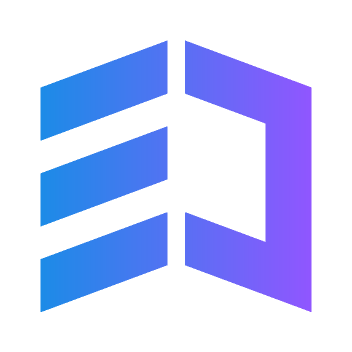Description

Examination Online

Learning Suite 360

SCL
Comprehensive Overview: Examination Online vs Learning Suite 360 vs SCL
Examination Online, Learning Suite 360, and SCL (a hypothetical platform, given no specific name matches) are e-learning and examination solutions designed to meet the varying needs of educational institutions and corporate training environments. Here's an overview of each:
Examination Online
a) Primary Functions and Target Markets
- Primary Functions: Examination Online focuses on providing robust online testing and assessment tools. It allows for the creation, distribution, and grading of exams, quizzes, and surveys. Additionally, it offers analytics for tracking performance and understanding trends.
- Target Markets: Educational institutions (schools, colleges, universities), certification bodies, and corporate training departments are the primary markets. It's particularly suited for organizations that need to conduct frequent, standardized assessments.
Learning Suite 360
a) Primary Functions and Target Markets
- Primary Functions: Learning Suite 360 presents a comprehensive learning management system (LMS) that handles the delivery and management of online courses, training programs, and educational content. It provides tools for course creation, learning path design, performance tracking, and user engagement.
- Target Markets: This suite caters primarily to corporate environments for employee training and development, as well as educational institutions looking to implement a full-scale digital learning environment.
SCL (Self-Constructed Learning) - Hypothetical Platform
a) Primary Functions and Target Markets
- Primary Functions: Without specific information, an SCL platform might focus on personalized learning approaches, supporting self-paced learning modules, customizable content, and adaptive learning technologies.
- Target Markets: Individuals seeking self-improvement or professional development, including supplementary educational services for schools and specific corporate sectors needing tailored training solutions.
b) Market Share and User Base
-
Examination Online may have a niche market share concentrated in sectors requiring detailed assessment tools. The user base typically includes academic institutions and certifying agencies focusing on standardized testing.
-
Learning Suite 360 likely holds a more significant portion of the market share in the LMS category due to its comprehensive offerings targeting diverse learning environments. Its broad user base spans corporations, universities, and other organizations requiring scalable learning solutions.
-
SCL Platform market share would depend on its specific positioning, whether as a standalone adaptive learning tool or as part of a broader educational package. Its user base would vary accordingly but likely include individual learners and specialized educational institutions.
c) Key Differentiating Factors
-
Examination Online focuses specifically on assessment, differentiating it by offering superior capabilities in testing formats, analysis, and certification features. Its strength lies in handling complex examination needs efficiently.
-
Learning Suite 360 is distinguished by its all-encompassing LMS features, flexibility, and scalability, making it suitable for varying educational strategies and large-scale implementations. It's likely to have broad integration capabilities with other educational technologies.
-
SCL Platform, if built around self-directed learning, would differentiate by providing highly personalized learning experiences, adaptive learning paths, and content customization, appealing to audiences seeking self-paced, tailored educational journeys.
In summary, while overlapping in the broader e-learning and assessment domains, each solution has unique strengths and caters to specific market demands, from focused examination processes to holistic educational experiences.
Contact Info

Year founded :
Not Available
Not Available
Not Available
Not Available
Not Available

Year founded :
Not Available
Not Available
Not Available
Not Available
Not Available

Year founded :
2018
Not Available
Not Available
Egypt
Not Available
Feature Similarity Breakdown: Examination Online, Learning Suite 360, SCL
To provide a detailed comparison, let's break down the feature similarity, user interface comparison, and unique features for Examination Online, Learning Suite 360, and SCL.
a) Core Features in Common
-
Course Management:
- All three platforms offer comprehensive tools for creating, managing, and organizing course content, allowing instructors to upload materials, create modules, and structure their courses efficiently.
-
Assessment and Evaluation:
- They provide features for creating and managing assessments, quizzes, and exams, with capabilities for auto-grading and feedback.
-
Progress Tracking:
- The platforms provide progress tracking dashboards to monitor learners' performance and engagement.
-
Collaboration Tools:
- Each platform includes communication tools like forums, chat, or email to facilitate interaction among users.
-
Reporting and Analytics:
- These systems come with data-driven reporting tools to help educators and administrators analyze performance metrics and learner outcomes.
-
Integration Capabilities:
- All platforms offer integration with third-party applications and tools like Zoom, Google Workspace, or LMS systems to enhance functionality.
b) User Interface Comparison
-
Examination Online:
- Typically features a straightforward, utilitarian interface designed to prioritize functionality over aesthetics. It's focused on exam creation and management, which makes navigation intuitive but visually basic.
-
Learning Suite 360:
- Offers a modern and visually appealing user interface with intuitive navigation. It's designed to enhance the learning experience through multimedia integration and user-friendly dashboards.
-
SCL:
- Features a clean and professional interface with a focus on simplicity and efficiency. The design is functional, with an emphasis on ease of access to core features, making it ideal for users who prioritize straightforwardness over complex visual elements.
c) Unique Features
-
Examination Online:
- Specializes in robust proctoring features for secure exam administration, including remote proctoring capabilities and various anti-cheating mechanisms.
-
Learning Suite 360:
- Integrates advanced learning analytics and adaptive learning technologies to tailor the learning experience according to individual progress and needs.
-
SCL:
- Offers a unique emphasis on student lifecycle management, covering admissions, enrollment, and alumni management, making it a comprehensive solution for educational institutions.
These analyses help highlight each platform's strengths, which can guide decision-makers in selecting the most suitable product based on their specific educational needs.
Features

Not Available

Not Available

Not Available
Best Fit Use Cases: Examination Online, Learning Suite 360, SCL
Examining the optimal use cases for Examination Online, Learning Suite 360, and SCL involves understanding their unique capabilities and aligning them with specific business needs. Here's a breakdown of when each platform might be most appropriately utilized:
a) Examination Online:
- Best Fit: Examination Online is best suited for organizations that need a robust platform for creating, administering, and managing assessments or exams. This includes educational institutions, certification bodies, and corporate training departments.
- Use Cases:
- Academic institutions conducting online exams for students.
- Professional organizations offering certification exams.
- Corporations needing to assess employee skills as part of talent management or compliance training.
- Industries: Education, professional certification providers, corporate HR departments.
b) Learning Suite 360:
- Preferred Scenarios: Learning Suite 360 is ideal for comprehensive e-learning platforms requiring a blend of curriculum management, content delivery, and learning analytics. It's suitable for businesses looking to implement a scalable learning and development solution.
- Use Cases:
- Large enterprises implementing company-wide training programs.
- Educational institutions looking to offer distance learning or blended learning environments.
- Companies in highly regulated industries needing continuous education compliance.
- Industries: Large enterprises, educational institutions, healthcare, finance, and industries with extensive training programs.
c) SCL (Smart Corporate Learning):
- Consideration Over Others: SCL stands out as a corporate-focused learning management solution facilitating knowledge sharing, skill development, and collaborative learning. It's an excellent choice for organizations prioritizing employee engagement and personalized learning paths.
- Use Cases:
- Companies aiming to foster a culture of continuous learning and development.
- Organizations focusing on improving workforce agility and skills alignment with business goals.
- Businesses leveraging AI and data analytics to customize employee learning experiences.
- Industries: Technology, consulting, creative industries, and innovative SMEs.
d) Catering to Different Industry Verticals or Company Sizes:
- Examination Online is accessible to educational institutions of all sizes and corporations across various industries needing assessment tools, making it versatile and scalable.
- Learning Suite 360 works well for larger entities that can benefit from an all-in-one solution, handling multiple aspects of learning management across various verticals, including healthcare, finance, and any sector with recurring training demands.
- SCL is uniquely positioned to cater to medium to large enterprises in dynamic industries where learning is seen as a key driver for innovation. Its focus on collaboration and skill development makes it ideal for tech and creative industries.
Ultimately, the choice between these platforms should be guided by the specific needs of the business or educational project, including the scale, industry requirements, and learning objectives.
Pricing

Pricing Not Available

Pricing Not Available

Pricing Not Available
Metrics History
Metrics History
Comparing undefined across companies
Conclusion & Final Verdict: Examination Online vs Learning Suite 360 vs SCL
To provide a conclusion and final verdict for Examination Online, Learning Suite 360, and SCL, let's take a comprehensive look at how each product stacks up considering all factors, such as features, usability, cost, and support.
Conclusion and Final Verdict
a) Best Overall Value
Learning Suite 360 offers the best overall value among the three products. This is due to its balanced combination of comprehensive features, ease of use, and cost-effectiveness. It supports a wide range of learning activities and integrates well with other systems, making it suitable for diverse educational needs.
b) Pros and Cons
-
Examination Online
- Pros:
- Specialized in assessment with robust examination tools
- Secure and reliable platform for high-stakes testing
- Customizable templates for different examination formats
- Cons:
- Limited features outside the scope of examinations
- May require integration with other systems for a complete learning experience
- Could be more expensive if only used for exam capabilities
- Pros:
-
Learning Suite 360
- Pros:
- Comprehensive features covering the full spectrum of e-learning needs
- Seamless integration with various educational tools and platforms
- Intuitive interface and easy navigation
- Cons:
- Might involve a steeper learning curve initially
- Some users may find the feature set overwhelming
- Pros:
-
SCL
- Pros:
- Strong focus on collaborative learning
- Good communication tools and peer-to-peer interaction features
- Affordable pricing for basic plans
- Cons:
- Limited examination and assessment capabilities compared to Examination Online
- Can lack depth in advanced e-learning features
- Pros:
c) Recommendations
-
For users primarily interested in robust examination and assessment features, Examination Online is the best choice. It is highly secure and specialized, making it ideal for institutions that prioritize testing.
-
Those looking for a comprehensive learning management system with strong support for various types of content delivery, user management, and integration capabilities should opt for Learning Suite 360. It serves the broadest range of needs and offers the best scalability.
-
For educators and institutions focusing on collaborative learning experiences and peer interactions, SCL is a suitable option. It’s cost-effective for those who don’t require extensive examination tools or complex integrations.
By aligning product strengths with the specific needs of the user, these recommendations provide a tailored approach to selecting the best e-learning solution among Examination Online, Learning Suite 360, and SCL.